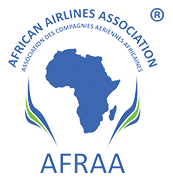
Onomo Hotels, the largest African hotel provider in the mid-range segment, has selected Sabre Hospitality Solutions as distribution provider and business partner for its hotels across 13 countries and 22 cities in Africa.
Under the landmark agreement, Onomo Hotels will use Sabre’s platform solution including SynXis Central Reservations for its new distribution strategy. The Group will benefit from the Sabre SynXis Platform’s advanced technology to streamline its operations and grow its footprint in Africa, while securing an effective, future-ready channel strategy that will maximize revenue of both direct and indirect channels.
Through its SynXis Platform, Sabre will support Onomo Hotels’ growth by helping capture more bookings, leveraging the power of online bookings via the SynXis Booking Engine and GDS connectivity, as well as other third-party distribution channels via the Sabre travel marketplace.
“Our objective is to continue to grow Onomo Hotels in Africa, and Sabre’s innovative technology will help us achieve this,” said Souleymane Khol, Chief Operating Officer for Onomo Hotels. “Sabre invests significantly in its technology and is able to scale quickly to meet the needs of a growing business, we are looking in further depth at their wide range of solutions to strengthen our distribution. It also demonstrates a deep understanding of local needs while having a global perspective, making it the right partner for us.”
Thanks to this partnership, the over 2,800 Onomo Hotels rooms will benefit from SynXis Central Reservations and its industry-leading reach with connections to almost 900,000 travel agents and nearly 700 online channels across the globe, including hundreds of online travel agencies (OTAs) and metasearch engines.
“Hospitality providers like Onomo Hotels need access to robust technology solutions as well as a broad network of channels to reach customers where they are and increase conversions,” said Frank Trampert, SVP and Global Managing Director Commercial, Sabre Hospitality Solutions. “At Sabre, distribution is at the core of what we do, and our solutions are among the most widely used and respected. As we continue to invest in our systems and innovate on our solutions platform, we expect that our technology will help Onomo Hotels grow revenue for its partner hotels across the continent.”
The SynXis CR provides distribution of rates and inventory through all online and offline distribution channels; connectivity to global distribution systems, online travel agents, website and mobile booking engines; and seamless integration of critical property, revenue management, loyalty and content systems, providing holistic views of hotel guests and revenue. Sabre’s central reservation system is powered by the SynXis Platform, an open architecture platform that integrates critical hospitality systems to optimize distribution, operations, retailing and guest experience.
Sabre Hospitality Solutions currently has more than 40,000 hotels leveraging its SynXis technology to power distribution, reservations, property management, retailing and guest experience solutions.
###
About Sabre Corporation
Sabre Corporation is a leading software and technology Company that powers the global travel industry, serving a wide range of travel companies including airlines, hoteliers, travel agencies and other suppliers. The Company provides retailing, distribution and fulfilment solutions that help its customers operate more efficiently, drive revenue and offer personalized traveler experiences. Through its leading travel marketplace, Sabre connects travel suppliers with buyers from around the globe. Sabre’s technology platform manages more than $260B worth of global travel spend annually. Headquartered in Southlake, Texas, USA, Sabre serves customers in more than 160 countries around the world. For more information visit www.sabre.com.
About Onomo Hotels
Onomo Hotels is a leading African Hospitality group operating 22 hotels in 13 African countries: Senegal, Ivory Coast, Gabon, Mali, Togo, South Africa, Guinea Conakry, Rwanda, Morocco, Cameroon, Tanzania, Mozambique and Uganda. Our latest imminent opening of Onomo Hotel Kampala that features 148 rooms and suites, allows the group to reach a total capacity of over 2,900 rooms. Anchored in a moving Africa, ONOMO Hotels group develops hotels in the heart of Africa and puts Africa at the heart of its hotels. The group’s mission is to offer midscale hospitality that meets international standards while preserving the local particularities of each country, to welcome business and leisure travelers in the best conditions. Providing design hotels in privileged locations, managed by professional and experienced teams in a friendly atmosphere in order to create memorable stays, this is the promise of ONOMO Hotels.
More information on www.onomohotels.com, or on the group’s social networks platforms (Facebook, LinkedIn and Instagram)
Media Contact:
Marta Dall’Arche
Marta.DallArche@sabre.com
Source: Sabre





